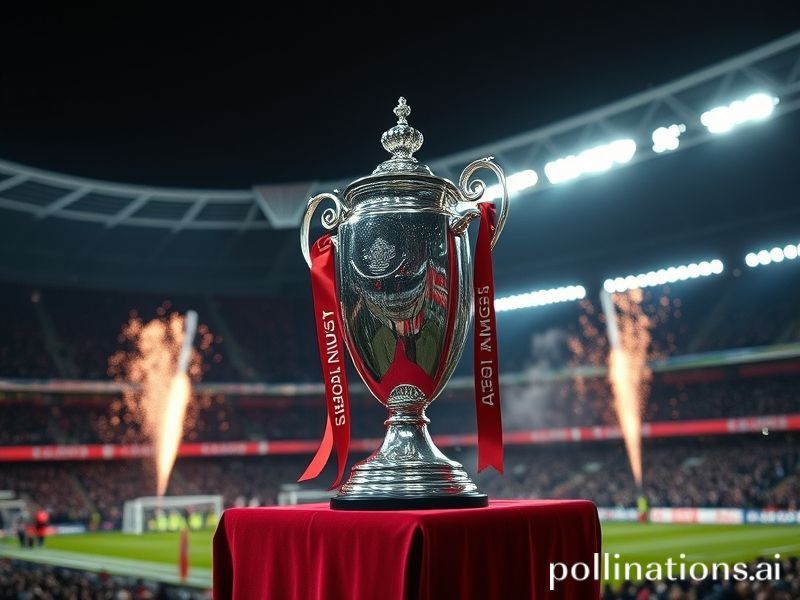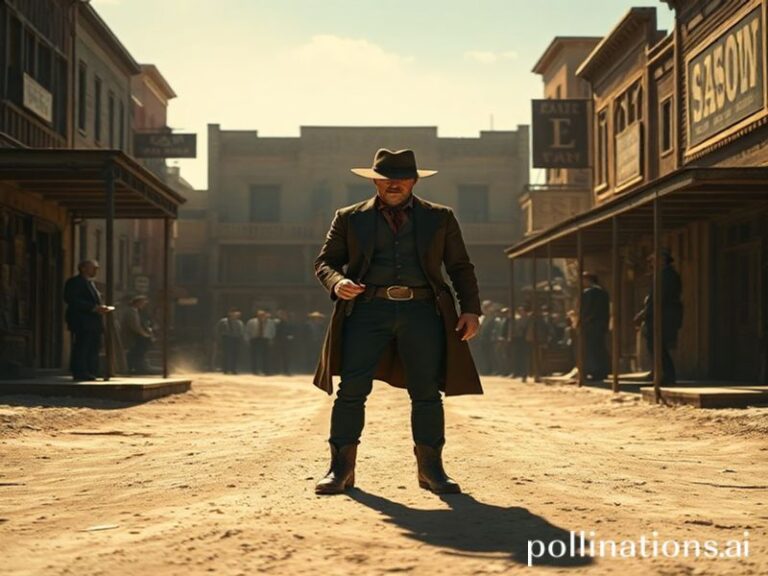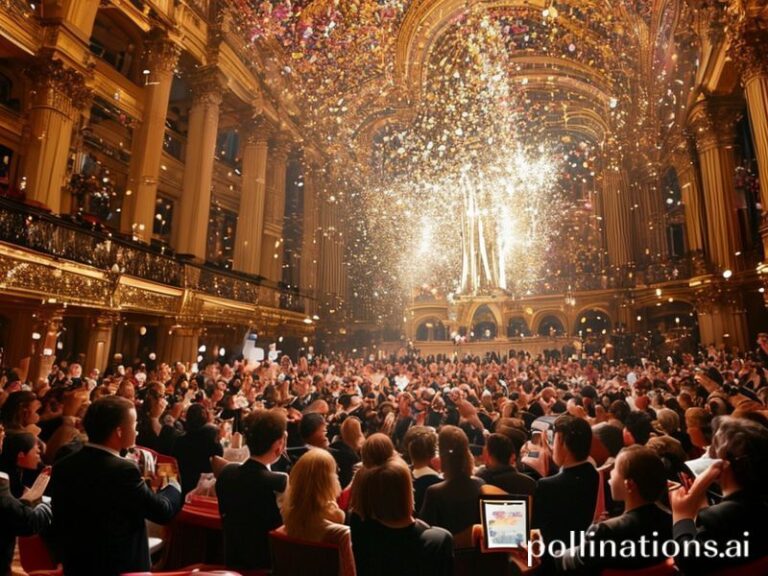EFL Cup: How a Modest English Trophy Became the World’s Most Honest Mirror
The EFL Cup: A Small Silver Vase in a World on Fire
By Our Man in the Departure Lounge, Somewhere Over the North Sea
Somewhere between the 38th parallel and the M6, I found myself watching Middlesbrough fans politely queue for overpriced lager while Tottenham’s travelling support argued over whether Korean fried chicken counted as cultural appropriation. The occasion was the EFL Cup quarter-final, a competition so modest that even the sponsors change every time a currency wobbles. Yet here we were, a microcosm of global anxieties distilled into 90 minutes plus whatever VAR decides stoppage time means these days.
To the uninitiated, the EFL Cup is merely England’s third-most-important domestic trophy—an accolade that ranks somewhere between “Best Use of Papyrus Font on a CV” and “Most Improved Player in the Office Five-a-Side League.” But step back and you’ll see the thing is a geopolitical Rorschach test. The stadium concourse sells Budweiser (American), screens flash adverts for Binance (Cayman Islands), and the match ball is Mitre (Pakistan). All of it is beamed via satellite to betting syndicates in Manila so a 19-year-old coder in Lagos can livestream in-play odds to his WhatsApp group. Somewhere, a Russian oligarch’s dormant yacht twitches at the thought of shirt-sleeve sponsorship.
The players themselves are passport salad. Spurs’ starting XI featured a French captain marshalling an Argentine centre-back, flanked by a Welsh full-back and a Colombian winger who learned his trade in the same Barranquilla barrio that produced Shakira’s hips. Middlesbrough countered with a Senegalese striker who once rejected a call-up to fight for the Teranga Lions because the northeast of England offered better dental coverage. In the stands, a Saudi consortium representative checked his Rolex against the stadium clock, calculating how many extra injury-time minutes it would take to recoup his sovereign wealth fund’s quarterly losses on European football tourism.
We like to pretend sport is escapism, but the EFL Cup refuses to cooperate. Climate change is literally in the air: a sideways sleet that feels imported from the melting Arctic. The PA announcer thanks the fans for “supporting the energy-saving initiative” while thirty floodlights vaporise enough electricity to power a midsize Moldovan village. Outside, the queue for the park-and-ride snakes past a food bank collection point; inside, hospitality boxes serve wagyu sliders to people who think wagyu is a Japanese midfielder.
And still, the ritual endures. Why? Because humans are pattern-seeking missiles in a void of chaos. Offer us a tin-pot cup, a barely regulated transfer market, and the illusion of meritocracy and we’ll build cathedrals of devotion. The same impulse that once carved saints into cathedral doors now manifests as a £65 retro shirt made in a Bangladeshi factory where the workers have never heard of Burnley, let alone been there on a wet Wednesday.
The match itself was, predictably, the sort of damp squib that could only excite a tactical analyst or a divorce lawyer. Spurs scored early via a deflected shot that looped in slow motion, as though the ball itself was embarrassed. Middlesbrough equalised from a penalty awarded after the VAR drew squiggly lines precise enough to shame a Swiss watchmaker yet somehow missed the defender’s theatrical collapse. Extra time arrived like an unwanted houseguest, stayed just long enough to ruin the carpet, and left on penalties—because nothing says “justice” like a skills contest no one practises.
As the final whistle blew, the stadium DJ cued “Three Lions,” a song older than half the squad and twice as deluded. Fans shuffled toward exits already planning the next pilgrimage: a 4 a.m. coach to Luton, a budget flight to Eindhoven, a mortgage application for a season ticket. Somewhere, a Ukrainian refugee watching on a cracked phone screen smiled at the absurdity of caring who lifts a piece of metal that won’t even be displayed in the club museum unless it’s polished quarterly.
In the end, the EFL Cup is not about football. It’s about the human need to construct meaning from the meaningless, to pretend that a Tuesday night in Stoke matters more than a UN Security Council deadlock. And maybe—just maybe—it does. Because while the world’s great powers argue over who gets to ruin the planet fastest, 22 millionaires are still chasing a ball across a rectangle of grass, and for 120 minutes plus shoot-out, that’s enough.







